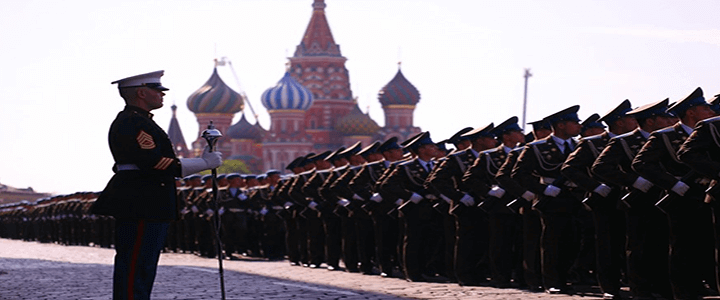While the tensions between the Russian Federation and the rest of the world continue to heat up, the current state of affairs is not at the heat index levels experience during the Cold War era. In 1963, there was a very real potential of nuclear conflagration and annihilation.
We’re aren’t there now.
Yes, even with President Trump, UK’s Prime Minister Theresa May, and French President Emmanuel Macron’s verbal jousting with Russian President Putin at a febrile pitch, cooperation between the nations continues. One very visible area of mutual cooperation is the International Space Station, and the other is terrorism.
The world of countering terrorism
The United States operates under the doctrine of “duty to inform” innocents and governments of impending terrorist activities which may put the individual or citizens of a given country in harm’s way. Other countries do as well, including the Russian Federation, from time to time.
A prime example of this doctrine in action occurred last year.
United States warns Russia
In December 2017, the Russian security services thwarted an act of terrorism at the Kazan Cathedral in St. Petersburg. The CIA provided the Russian’s sufficient information to allow for the identification of seven terrorists. The Kremlin issued a statement:
“The head of the Russian state asked the American president to convey words of thanks to the director of the C.I.A. and the American intelligence officers who received this information.”
Step back a bit further and we will see a prime example of Russia warning the United States about a potential terrorist. In March 2011 Russia warned the FBI that Tamerla Tsarnaev, the Kyrgyzstani-American terrorist convicted of the Boston bombing, was a “follower of radical Islam.” The same warning was later sent to the CIA. Due to possible missteps and a failure to follow-up, the threat Tsarnaev posed was not identified in time.
US doctrine on terrorism is leveraged and abused by Russian counterintelligence
While intended to protect against terrorist threats, this “duty to inform” is sometimes leveraged by the Russians for intelligence purposes.
Such was the case with the Tsarnaev brothers. The Russian counterintelligence arm of the FSB launched a provocation against the U.S. An individual within the FSB claimed knowledge not shared by the FSB about the Boston bombing. He reached out to FBI and offered to share it for $130,000 and anonymity.
The CIA opted to meet with the unidentified and unvetted individual. The officer arrived at the meeting place and was arrested, subjected to a photo and video expose, and expelled from Russia. U.S. media marked it as a failure, but the exact opposite was true, and the naivete of the media glared brightly.
The CIA did realize this could be a provocation, as it was not their first rodeo. They were prepared for multiple outcomes.
- Obtain the sensitive information and establish a long term relationship with the source.
- If it proved an FSB provocation, then:
- Signal to all within the FSB and other Russian government entities that the U.S. shows up with cash, and a lot of it.
- Don’t share any advanced tradecraft methods to the FSB, but , only what they already know with respect to technology and disguises.
- Use an officer whose tour of duty is about to end, thus losing the officer for a few months and not years.
The duty to inform drove the decision train that day, and yes, the Russian FSB took advantage of the agreement. The U.S. lost $130,000, a compass, a flip-phone, a map, flashlight and a hat with a wig sewn inside. The U.S. gained the renewed knowledge among every FSB officer that when it comes to saving lives, the U.S. cares.
A broader message to the rest of the world: the US follows through on the doctrine of duty to warn, and will take chances to meet with individuals who may have information, including information to thwart an attack in their country or any other.


